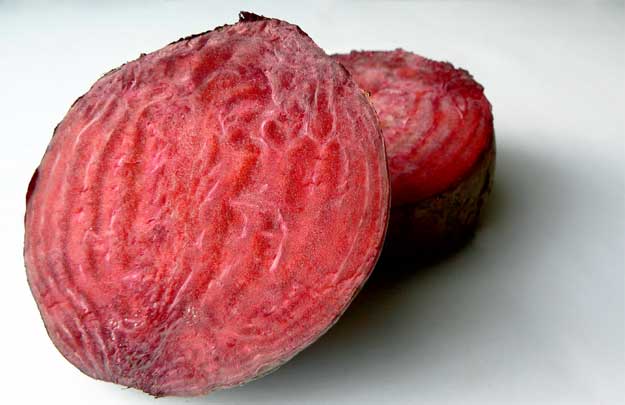
Apart from being a powerful source of antioxidant, beet-root derives most of its other health benefits owing to the presence of the component betaine. Beet allergy can also imply undesirable reactions of the immune system of our body on consuming the sugar beet and chard. The tuber of a sugar beet plant contains a very high concentration of sucrose. Chard is another leafy vegetable of very high nutritional diet value. Beet-root, sugar beet and chard together derive their origin from the ancestor perennial plant, sea beet.
Though it is rare, humans do experience allergic conditions after the intake of the useful sea-beat plant vegetables. Depending upon the unique response of the immune system to it, the effects of the beet allergy can be either mild, moderate or severe in nature. Awareness of the symptoms and treatment of this condition can go a long way in dealing with its health menace.
Symptoms of Sea-Beet Allergy
- Running nose
- Sore throat
- Watering of the eyes
- Wheezing
- Hair Loss
- Dark circles under the eyes
- Vomiting
- Diarrhea
- Rashes
- Itching
- Facial swelling
- Hives
- Pus discharge
- Asthma-like symptoms
- Rubbing of nose continuously in upward direction
- Sinus pain
- Red eyes
- Stomach upsets
- Ear infections
When the main components of these beets enter the body, the natural protection mechanism technically called the immune system mistakenly treats them as threats to the body. It releases IgE antibodies to deal with these components. The consequence of the conflict is the appearance of the above mentioned symptoms of beet allergy.
People with compromised immune system diseases like diabetes, aged people and young children are more vulnerable to this very rare human allergy.
Treatment of Beet Allergy
The mechanism behind the origin of any allergy is not known yet. While some people are more prone to some allergy, others are not. Every person depending on his or her unique immune system makeup either successfully resists any threats of allergic reactions or falls prey to it.
There is technically no cure for allergies. The best treatment of deal with this condition is to avoid the main food directly. Foods containing traces of the main food should also be avoided by listing them on the bases of research and experience. Allergy and heredity have a close relationship. Awareness of the presence of this condition in the family can help in its early prevention.
Antihistamines drugs can be taken on the prescription of the doctor to get relief from mild to moderate symptoms of this condition. Carrying some of these drugs while on travel can prove very handy in odd times.
However, if the person is prone to severe form of allergic reactions to beet, then extra caution and care must be followed by the individual and the family members. In most of the severe cases, immediate medical attention becomes critical as any negligence or ignorance on this behalf can prove to be life-threatening to the patient.
Pets like cats and dogs are more sensitive to this form of allergy and are affected more by the presence of this vegetable at home. During the intake beet, it is advisable to keep the pets away from the food.
